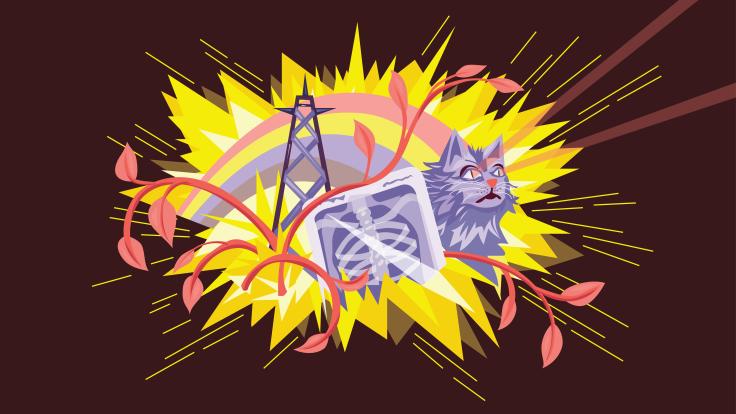"She's one of those people who really knows what she wants,'' says Michael Peskin, a theoretical physicist at Stanford Linear Accelerator Center, where Farzan was a visiting graduate student from 2001-2004.
Farzan showed promise early on. She was the first female student chosen for the Iranian team at the International Physics Olympiad, winning a silver medal in theory and the best female student award in the competition held in Beijing in 1994. The team came in fifth, its best showing ever. She studied elementary particle physics at Sharif University, earned a master's degree and was one of eight students accepted into the PhD program at SISSA, the International School for Advanced Studies in Trieste, Italy, where she decided to concentrate on neutrino physics.
A year into the program her husband, theoretical physicist Mohammad Sheikh-Jabbari, was invited to take a postdoc position at Stanford University. Farzan arranged to work nearby at SLAC.
"I thought this was problematic,'' Peskin recalls, "because she was interested in neutrino physics and we don't have anyone here who is an expert in neutrino physics, at least not in the theory group."
But it turned out fine, he says. Farzan was determined to continue her work and get answers to any question that came up. "I had the experience of being dragged kicking and screaming into flavor physics," Peskin says, "and it ended up being quite successful. She wrote some beautiful papers while she was here, and we wrote a nice collaborative paper together." Farzan continued to work with her thesis advisor, Alexei Smirnov, took advantage of a visit from Yuval Grossman, an expert in neutrino physics who is now at Cornell University, and received additional help from SLAC's Helen Quinn.
Farzan received her PhD in 2004, returned to Tehran with her husband--now head of the school of physics at IPM--and set to work building a program in phenomenological particle physics there. She has already organized two IPM spring schools; "It's something that's quite entrepreneurial,'' Peskin says. Last summer, Peskin gave a course at ICTP, the Abdus Salam International Center for Theoretical Physics in Trieste, which offers training and research opportunities to scientists from developing countries. There he met a number of Iranian students who had taken Farzan's classes, an indication that her efforts are already having an impact. Says Peskin, "This is really what you hope will happen."







